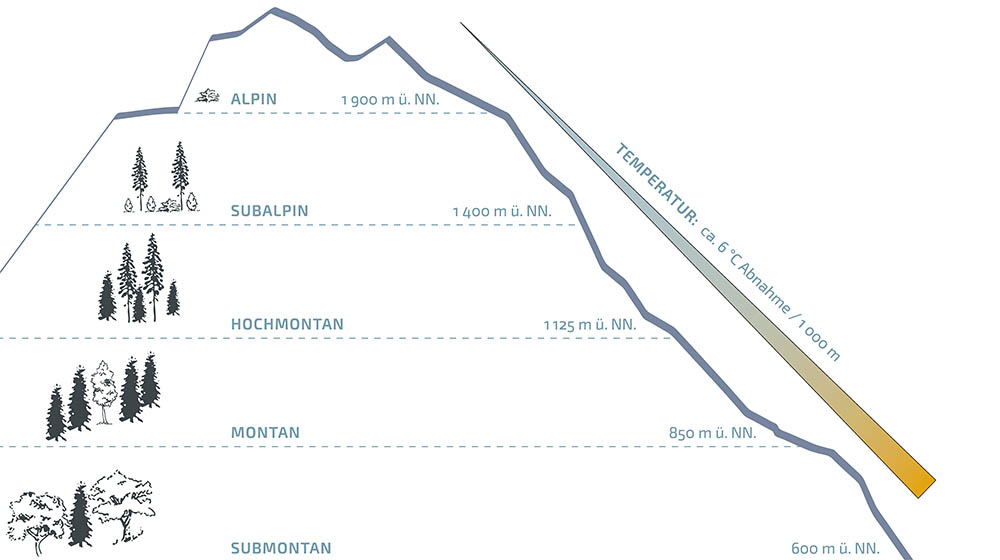Elevation gradients
As climatic conditions change with increasing altitude, ecosystems change in terms of species composition and ecosystem processes. Thus, studies of biodiversity change along altitudinal gradients provide new insights into how species communities and ecosystem processes are shaped by existing environmental conditions. From this, expected consequences of environmental changes due to climate warming can be derived.

Setting up the first equipment at the beginning of the growing season
Living organisms have species-specific survival strategies, and different species react differently to changes in their environment. Climate warming can therefore be expected to lead to a reorganization of species communities and thus to a change in biodiversity. This also affects important ecosystem processes, such as nutrient cycles.
Cold-adapted species in mountain regions are under increased pressure due to global change, as they are often only able to compete to a limited extent under altered environmental conditions. Montane and alpine ecosystems are therefore particularly sensitive to climatic changes. At the same time, due to their natural climate gradient with increasing sea level, they allow studies on how biodiversity and ecosystem processes are influenced by existing and changing environmental conditions - and thus, to a certain extent, allow a view into a future with changed climatic conditions.
In 2021 and 2022, we conducted comprehensive surveys on biodiversity and ecosystem processes on a network of 213 experimental plots in the Berchtesgaden National Park. The biodiversity of fungi and plants, insects and spiders, and vertebrates were surveyed together with various environmental parameters. The areas cover an altitudinal gradient from 600 to 2300 m above sea level and cover the typical habitats in the national park.
The study plot network is used to characterize the (natural) change of species communities with the altitudinal gradient as well as to quantify their re-organization by (man-made) climate warming. In addition, effects of this re-organization on ecosystem processes and threats to conservation-relevant species are investigated. The project will run over a period of three years until the end of 2023 and is carried out in cooperation with the Chair of Ecosystem Dynamics and Forest Management at the Technical University of Munich, the Bavarian Forest National Park and the Department of Conservation Biology at the Goethe University Frankfurt. Further questions based on the study plot network deal with biodiversity along successional gradients and transitions between forest and open land. A part of the study sites is also included in a long-term biodiversity monitoring.
